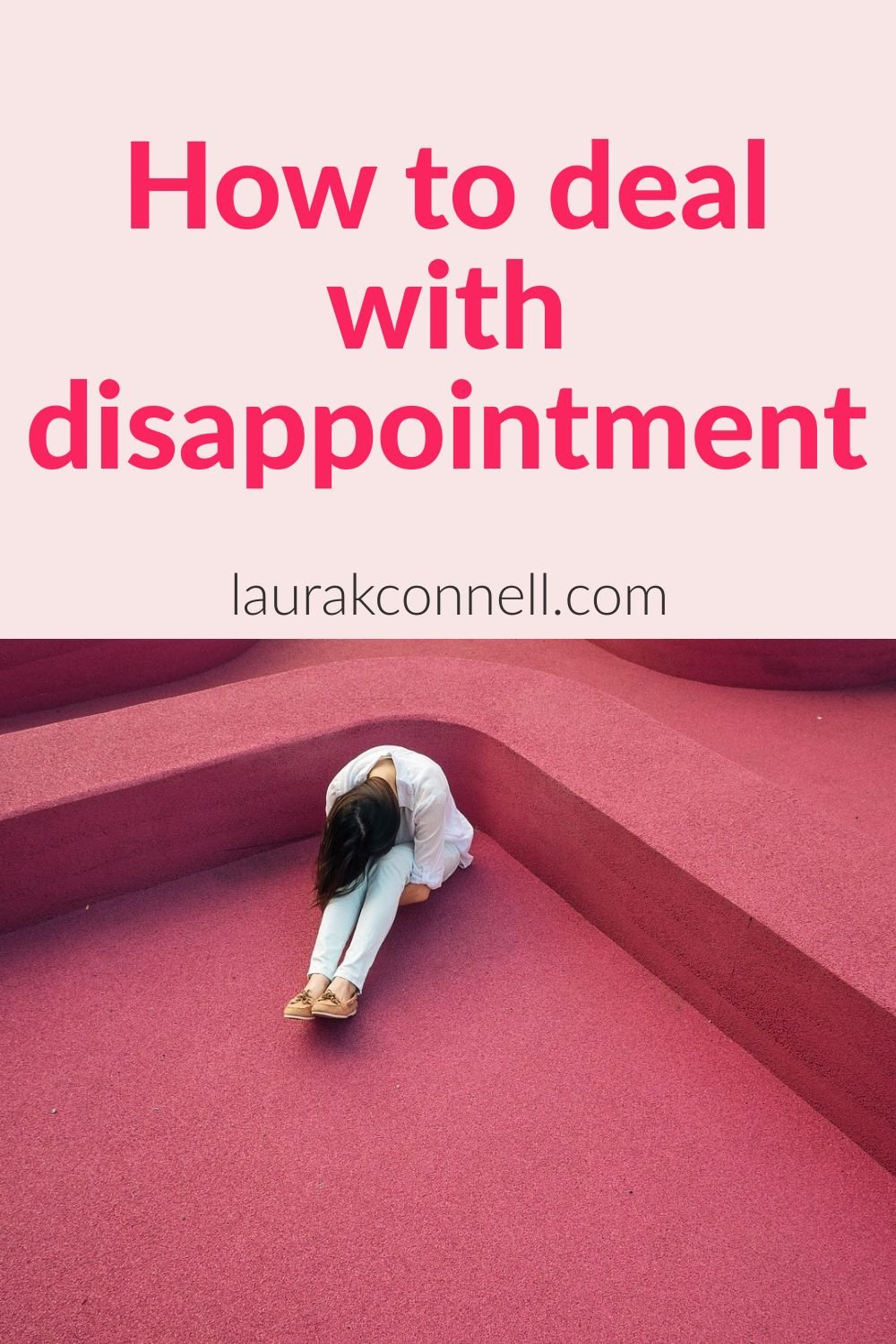Dealing with disappointment when you feel let down
Self compassion invites us to sink into our feelings rather than pushing them away or shaming ourselves. Through mindful self compassion practice, I've recently come to terms with the role of disappointment in my life.
Through additional inner parts work, I learned how much I tried to avoid disappointment. And how that linked back to the lack of support in my childhood and the constant experience of feeling let down.
I was never allowed to voice my feelings of disappointment, so I buried them. As a result, I tried to prop myself up with platitudes and words of false encouragement.
I beat myself up for not getting over things and denied myself the right to feel my disappointment. I also realized the direct connection between disappointment and expectation (more below).
Disappointment and the inner child
Denying myself disappointment was my inner child's way of protecting me from pain. With no one willing to support me through my emotions, navigating disappointment felt too difficult for me as a child.
Instead, I numbed out and depersonalized when someone or something let me down. It felt like a type of death. Rather than voicing my feelings, I fled them as a survival mechanism.
I felt I had no right to my disappointment and feared the emotion so much that I denied experiencing it. But, disappointment has been a constant and recurring daily experience that I have refused to allow myself.
In the name of giving voice to those disappointments, here are two from the last few days: being asked out enthusiastically for a second date with no follow up; mentioning my offer in an Instagram post and losing 500 followers in five minutes.
In the past, rather than acknowledging disappointment I would have shamed myself for feeling anything at all. Or I would have chastised myself for not predicting the future and doing things differently.
The role of magical thinking
I would have blamed myself even though I'd need magical mind reading powers to prevent these events from occurring. But this is how hard we are on ourselves as survivors of complex PTSD.
Since no one showed up for us we had to take care of ourselves. But, as children wholly ill-equipped to do so, we gave ourselves powers we were never meant to hold.
These powers made us self-sufficient and tasked with keeping ourselves alive in the face of recurring dangers. When you're in survival mode, feelings like disappointment seem like a luxury at best.
The truth is, disappointment may have been a constant in our lives. Worse yet, they were perpetuated by the very people who should have been encouraging and lifting us up.
So, we may cope by numbing ourselves from the feeling. This leads to a sense of hopelessness and ineffectiveness that lasts into adulthood.
Learning to embrace my feelings of disappointment has helped me take a look at my expectations. My protective inner child has had a lot of opinions about the way things need to go in order for me to be happy.
I've done the work to release my inner child to play and get curious. But I'm still working to release an attachment to outcome.
Instead of opening myself up to whatever may occur, I feel tied to things going a specific way. This, of course, is a recipe for disappointment and no fun way to go through life.
Accepting disappointment
As I allowed myself to accept these let-downs instead of denying them, the feeling of wanting to scream felt visceral. The desire to vocalize the pure frustration I had always worked to avoid came to the surface.
After sitting with the feelings, I realized disappointment is just that. It does not mean anything about me. It does not mean I've done anything wrong or am a failure or an embarrassment.
Often, it's the result of someone else's actions over which I have literally no control.


